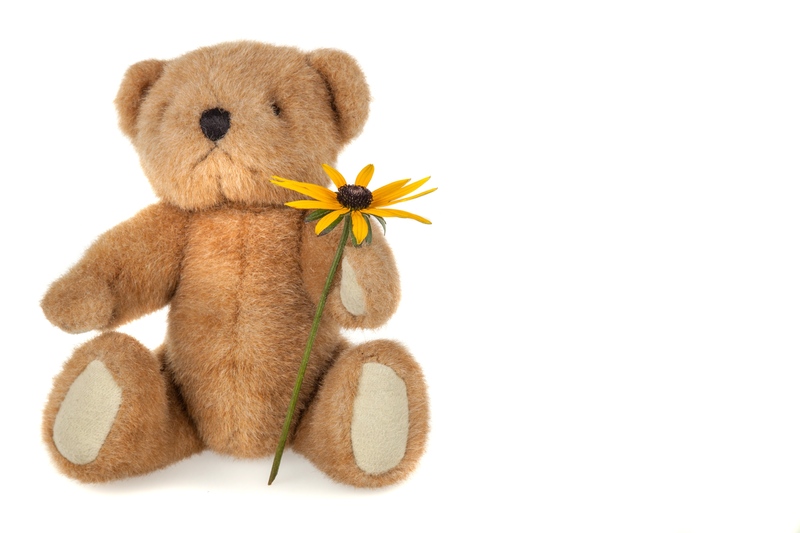Experience Lasting Change through Thoughtful Clutter Removal and Hoarder Support
Clutter removal is more than a simple process of clearing out physical objects. For many, especially those experiencing hoarder tendencies, the journey toward a clutter-free environment is deeply personal and transformative. Through thoughtful clutter removal and sustained hoarder support, individuals can break the cycle of accumulation, enhance well-being, and create space for meaningful living. This comprehensive guide explores strategies to help you experience lasting change through compassionate decluttering and practical hoarding support.
Understanding Clutter and Its Impacts
What is Clutter?
Clutter refers to the unnecessary accumulation of items in living or work spaces. While a little mess is common, persistent clutter can negatively impact one's physical and mental health. Clutter often includes items such as:
- Old paperwork and magazines
- Unused clothing and shoes
- Broken appliances and gadgets
- Sentimental items lacking functional use
- Excess kitchenware or collectibles
The Psychology Behind Hoarding and Clutter Accumulation
Individuals who struggle with hoarding disorder experience difficulty discarding possessions, often due to strong emotional attachments or fear of future need. This can stem from:
- Past trauma or loss
- Anxiety or obsessive-compulsive tendencies
- Feelings of isolation or emotional distress
- Personal beliefs about waste or thriftiness
Clutter not only takes up physical space but also drains mental energy, promotes shame, and strains relationships. That's why thoughtful, supportive clutter removal is so essential for people experiencing hoarding disorder.

Benefits of Thoughtful Clutter Removal and Hoarder Support
When approached with empathy and structure, clutter removal is more than an aesthetic change. It can unlock tangible benefits for body, mind, and home:
- Enhanced safety and reduced fire risk
- Improved hygiene and easier cleaning
- Greater peace of mind and reduced anxiety
- Increased productivity and focus
- Stronger relationships with household members
- More usable space for hobbies and hosting guests
Ultimately, lasting change is possible--but it requires both practical steps and supportive strategies tailored to each individual.
How to Begin: Preparing for Lasting Change
Adopting a Thoughtful Mindset
The first step in any effective clutter removal solution is to build a mindset rooted in acceptance and understanding. Lasting transformation begins with compassion, not judgment.
- Recognizing personal attachment: Let yourself honestly acknowledge which items trigger emotional responses and why.
- Establishing realistic goals: Aim for progress, not perfection. Small, consistent steps are often more sustainable.
- Involving trusted support: Seek help from friends, family, or professionals experienced in hoarding support and decluttering for hoarders.
Planning Your Clutter Removal Approach
A structured action plan helps minimize overwhelm and maximize results. Consider these steps:
- Assessment: Survey your space and identify high-priority areas for decluttering--such as hallways, kitchens, or bedrooms.
- Timeline: Set an achievable schedule. For those with hoarding behaviors, dedicate short, regular sessions to avoid burnout.
- Tools & Resources: Gather bins for sorting, cleaning supplies, and reach out to local hauler or recycling services for disposal.
- Support: Engage with trained hoarding support specialists if possible as they offer both practical assistance and emotional guidance.
Effective Clutter Removal Strategies that Last
The "Keep, Donate, Discard" Method
One tried-and-true tactic for permanent clutter removal is the three-pile method:
- Keep: Only items with clear value, utility, or joyful significance stay.
- Donate: Items in good condition that you no longer use can benefit others.
- Discard: Broken, outdated, or unusable objects are responsibly recycled or trashed.
Organize your sorting approach by category (e.g., clothing, paperwork, kitchenware) rather than room by room. This helps maintain focus and streamlines decision-making.
Small Steps Yield Big Results
Break the task into manageable parts:
Focus on one drawer, one box, or one shelf at a time. Celebrate small victories. What matters is consistent progress.Engaging Professional Help for Clutter Removal and Hoarding Support
Sometimes, clutter and hoarding issues surpass what friends or family can handle. Professional organizers and hoarding support services are skilled in non-judgmental guidance, resources, and logistics. Benefits include:
- Confidentiality: Your information and situations are handled with privacy.
- Experience: Trained professionals know how to navigate difficult decisions and emotional triggers.
- Practical tools: Access to checklists, haul-away services, donation resources, and cleaning crews.
- Long-term planning: Ongoing support to maintain clutter-free habits.
- Find local services by searching "hoarder support near me," "compassionate decluttering services," or "clutter removal specialists."
Understanding the Importance of Emotional Support
Addressing the Emotional Side of Hoarding
For many, simply telling someone to "throw it out" can be hurtful or counterproductive. Effective hoarder support involves empathy and psychological insight.
- Acknowledge that letting go of objects may trigger grief, fear, or anxiety.
- Work through emotions together, not alone. Support groups--both online and in-person--can be invaluable.
- Therapy or counseling may help address underlying causes of hoarding and develop coping skills.
Fostering a Supportive Environment
Transforming a home or office isn't just about removing clutter but also about building new, nurturing routines:
- Encourage communication: Regular check-ins and gentle reminders foster trust.
- Celebrate milestones: Recognize and reward progress, however small.
- Create functional spaces: Designate clear homes for essential items and minimize re-accumulation.
Organizational Tools and Techniques for Lasting Change
Establishing and Maintaining New Habits
Lasting change after thoughtful clutter removal relies on new routines and systems that make order easy to maintain.
- Label storage bins and shelves for quick identification of contents.
- Use baskets and organizers for paperwork, accessories, and pantry goods.
- Set regular review dates to revisit spaces and remove unnecessary items.
- Adopt the "one in, one out" rule: For every new item brought in, let something go.
- Digitize photos, files, and documents to minimize paper clutter.
Technology and Digital Decluttering
Clutter is not only physical. Digital hoarding--accumulating unneeded files, emails, and apps--can contribute to stress and inefficiency.
- Organize computer folders and back up important files.
- Unsubscribe from email lists and delete outdated contacts.
- Regularly review downloaded media and apps to declutter devices.
Maintaining Progress: Preventing Clutter Relapse
Ongoing hoarding support is essential for preventing relapse. According to experts, lasting change happens when individuals are equipped with skills to manage triggers and make conscious choices about belongings.
- Establish boundaries: Set healthy limits on incoming items and reduce opportunities for acquiring unnecessary stuff.
- Practice mindful consumption: Pause before purchases and ask, "Will I use and value this?"
- Seek accountability: Friends, family, or support groups can provide gentle encouragement and help catch early signs of re-accumulation.

Resources for Thoughtful Clutter Removal and Hoarder Support
No one has to journey alone. Many organizations and online communities offer resources for people seeking ongoing clutter removal help and hoarder support:
- National Association of Productivity and Organizing Professionals (NAPO): Find certified organizers by specialty.
- International OCD Foundation--a hoarding resource: Guides and referrals for therapy.
- Children of Hoarders: Peer support and forums for families.
- Online decluttering communities: Reddit's declutter and hoarding forums offer advice, research, and encouragement.
Conclusion: You Can Experience Lasting Change
Thoughtful clutter removal and compassionate hoarder support offer more than a clean space. They pave the way for self-acceptance, growth, and enduring peace of mind. Whether you are actively decluttering, supporting a loved one, or seeking professional help, remember that lasting change comes with patience, empathy, and the right strategies.
The journey may be challenging, but the rewards--a safer, brighter, and more fulfilling life--are worth it. If you or someone you care about struggles with chronic clutter or hoarding, take the first step today. Embrace the power of thoughtful clutter removal and experience the difference that genuine hoarder support can make.
Ready to Start? Resources and Support Are Just a Click Away
Begin your path to lasting transformation by reaching out to local professionals, joining support networks, and practicing small, daily changes. Experience the freedom and joy that comes from reclaiming your space--and your life.
- Contact a local clutter removal service with experience in hoarding support.
- Connect with peer support groups who understand your journey.
- Focus on kindness--to yourself and others--as you move forward.
Experience lasting change through thoughtful clutter removal and hoarder support--your future can be brighter, lighter, and filled with possibilities.